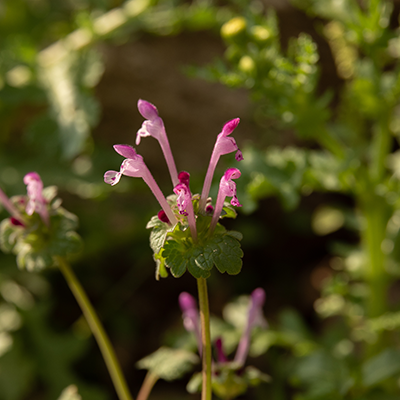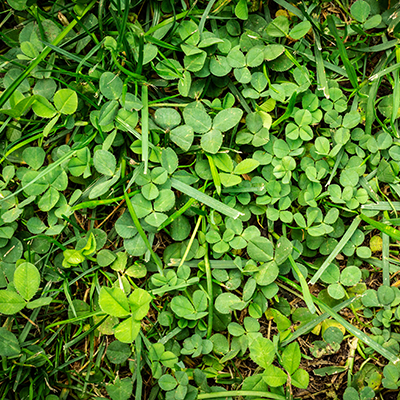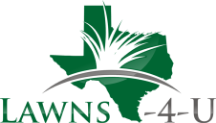It’s winter here in the Dallas area, time to let your guard down and forget about lawn care. Right? Not so fast! There are sneaky, vile weeds lying dormant in your backyard, waiting to reproduce come spring. That’s because, in Texas, there are two main types of weeds, broadleaf and grassy. Grassy weeds typically look like grass with a slender blade-type leaf. Broadleaf weeds have a more diverse collection of leaf shapes and look nothing like grass. It is the broadleaf weeds we need to worry about during the winter.
Why Are Broadleaf Weeds Such a Problem?
In late summer and fall, broadleaf weeds germinate. They remain semi-dormant throughout the winter and then flower in spring. They are tough plants that grow primarily in unwanted, open areas of our lawns and gardens. They come in a variety of shapes, but all have leaves with a vein down the middle that branches off into smaller veins. They can be annuals or perennials, have clusters of small or large flowers, and grow from seeds or rhizomes.
Once these intruders have finished blooming, they are ready to release all kinds of seeds. Some will grow right where they fall, and others will get carried by the wind, rain, animals, and insects to other locations. Those seeds will lay where they come to rest throughout the summer, germinating again when cooler temperatures are just right to start the cycle over again.
Here is a list of some of the most common broadleaf weeds that we find in the Dallas area and how you can go about preventing and eliminating them.
Henbit
Henbit, often confused with purple deadnettle, is a very common weed in Dallas that likes to rear its ugly head in later winter or early spring when the temperatures go up. It has square-shaped, hairy stems that can reach over a foot tall and are topped with small pink or purple flowers. Its leaves are rounded, grow in rings around the stems, and are light green. Like most weeds, it can grow anywhere and often pops up on sidewalks and driveways. Henbit has a fibrous root system making it hard to get rid of through hand pulling.
Chickweed
An annual broadleaf weed, it too, germinates in the fall. Once it starts, it produces large mats of foliage close to the ground and can grow up to eight inches high. It has hair covering its entire length, light green oval-shaped leaves that grow opposite of each other, and tiny white flowers. The flowers are small, about 1/8 inch across, and are white with five petals, giving them a star shape. Like henbit, chickweed’s roots are fibrous, making hand pulling of this weed next to impossible.
Dandelions
Everyone knows what a dandelion looks like. Their bright yellow color stands out like a sore thumb on a dark green lawn. Dandelions sprout up from a long taproot, making them hard to kill. The seeds are produced on puffballs above the leaves. If you’ve ever blown on one of the puffballs as a kid, you can remember how far each spread in the air. This is because the puffball was created to take the seeds a long way from the mother plant. This is why you never see just one dandelion on your turf and always find them in droves.
Clover
I can distinctly remember finding four-leaf clovers as a kid and thinking how lucky I was to find them. As an adult, I realize how challenging and irritating clover can be. This broadleaf weed is a stubborn weed common in Dallas with hairy, branched stems. Each stem has three small, petal-shaped leaves with a white V on each one. Clover tends to thrive in weak, nutrient-deficient grass. The good news with clover is that it has a shallow root system making them easy to pull out by hand. Unfortunately, if you leave even a bit of the root behind, the clover will grow right back.
Is There a Way To Prevent Broadleaf Weeds From Invading Your Dallas Lawn?
Maintaining a Strong and Healthy Lawn
The best way to prevent any of the above broadleaf weeds from growing is to first make sure you have a thick and healthy turf. Proper fertilization and hydration can go a long way in ensuring your lawn is able to fight off these invasive lawn intruders. Utilizing a lawn care program that includes fertilizer such as the highly effective plan Lawns-4-U offers can help increase the strength and resilience of your lawn. Then when weeds grow, they are less likely to be a problem and take over.
Pre-Emergent Herbicides
A second way to prevent the growth of broadleaf weeds is through pre-emergent herbicides. If applied correctly, the pre-emergent will create a barrier along the ground that prevents the seeds from spreading any further. With pre-emergent, timing is critical. It must be applied during a small window of opportunity. To ensure proper use, we recommend using a professional lawn care company such as Lawns-4-U to ensure proper application.
What if My Dallas Property Already Has Broadleaf Weeds?
Sometimes time gets away from us. Here in Dallas, spring arrives at different times every year, making it hard to gauge when we should start paying attention to our lawns. Perhaps you won’t read this article until after weeds have invaded your lawn. In this case, only post-emergent herbicides will do. Post-emergent herbicides are essentially weed killers. They are designed to eliminate weeds that have already sprouted and emerged from your lawn. But most post-emergent treatments are formulated for specific grass types, so be sure you understand the type of turf you have on your lawn, or for best results, call a professional.
To Prevent and Control Weeds on Your Property, Contact the Professionals at Lawns-4-U
Lawns-4-U is a local, full-service company dedicated to providing the entire Dallas area with superior lawn care service. We offer a unique 8-step lawn care program for each season that contains the appropriate fertilizer needed to keep your turf healthy and the right amount of weed control to maintain a well-manicured lawn. We start in the winter with pre and post-emergent weed controls and apply eight different applications throughout the year. Learn how our eight-step lawn care program containing weed control and fertilizer can help keep your Dallas turf lush, healthy, and weed-free by contacting us today. Visit our website and fill out our online form or call us at 972-859-0658.
If you found the above article interesting, feel free to share it with family and friends! And check out our other monthly blog articles here.
